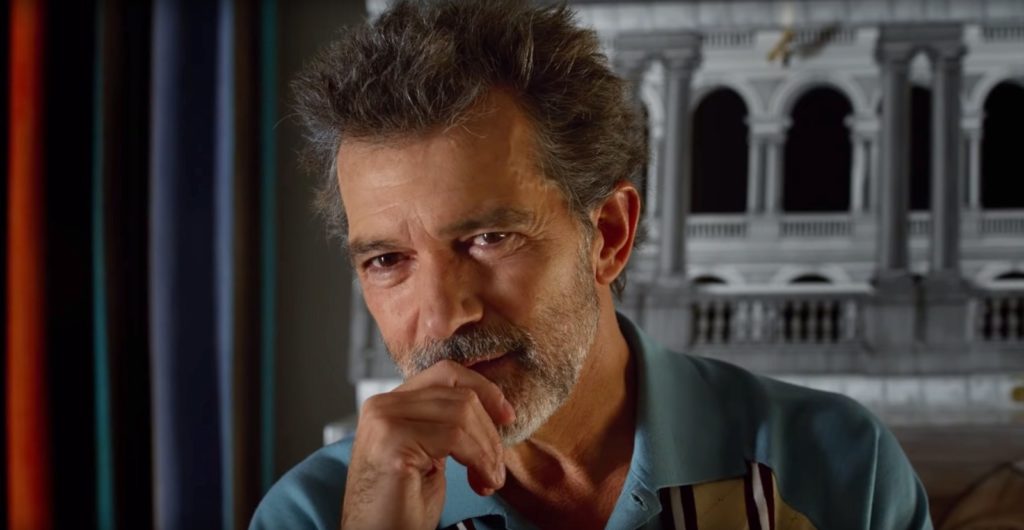With a filmography that spans almost 40 years and numerous genres, it could be said the Pedro Almodóvar (Talk to Her) is approaching the end of his career, but instead of retiring he has created a film that explores this very topic. Salvador (Antonio Banderas; The Mask of Zorro) is a famous director who has recently retired from filmmaking, citing his poor health. He decides to reconcile with the lead actor from an early film to appear together at a special screening and begins to recollect his childhood and the parts of his life that have shaped the man he is today as well as his life’s work.
As the director’s alter ego, Banderas is incredible. He sports a mostly-white beard and a tussled hairstyle mimicking Almodóvar’s own look, but his mood is his most striking feature. Banderas, now approaching 60, is no longer a young man, but in Pain and Glory he is weary beyond his years. He lists his various ailments that have left him unable to direct a feature and barely able to leave the house and it seems as if his life is coming to an end. He states that he doesn’t know what to do if he isn’t filming, but at the same time behaves as if he is a spent firework, lacking the necessary fuel to maintain a flame. Banderas brings an incredible restraint to his performance. Salvador tells his actor friend that actors shouldn’t cry and should instead be on the verge, fighting back the tears and he follows his own advice. When Salvador meets a former lover, the joy he feels from the reunion as well as the pain from knowing it will be short-lived are apparent in his watering eyes. The subtlety of Banderas’s performance adds integrity and humility to the material as Salvador is shown as a flawed and frail figure, grappling with his own existence.

Like most of Almodóvar’s work, Pain and Glory is filled with the bright hues of pop art. Salvador’s condo looks like it could be a museum with its vibrant decorations. His kitchen cabinets are bright red with contrasting teal tilework and most of the modern portion of the film shares this colorful palette, making even simple framings burst with style.
The beauty of this film is how its obscure subject matter becomes immensely relatable. As a personal memoir, it had the potential to become self-indulgent as Salvador’s mother tells him “I hate autofiction!”, but Pain and Glory never feels that way. Salvador’s unusual upbringing, living in an underground home in a small village or his immense success as a film director in his adult life are not experiences most people will relate to, but the emotions on display are so vivid that is impossible to not lose yourself within them. Each memory feels authentic, almost revelatory, as Salvador tries to understand himself through recollecting his childhood and it becomes clear that not only is this film part memoir, so is the majority of Almodóvar’s filmography. With Pain and Glory, Almodóvar has taken the deeply personal and transformed it into emotions that are universal, resulting in one of the most nuanced, and intensely felt films of his career.

4/5 stars.
